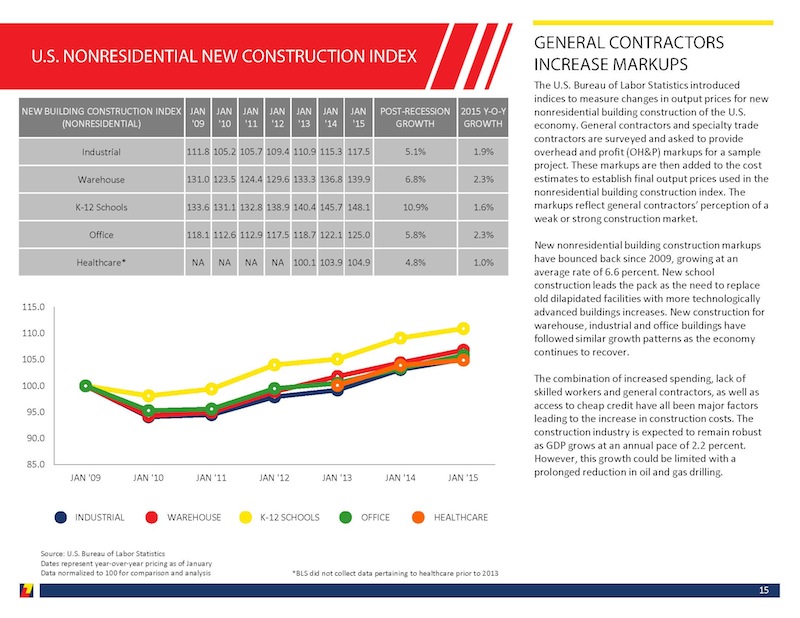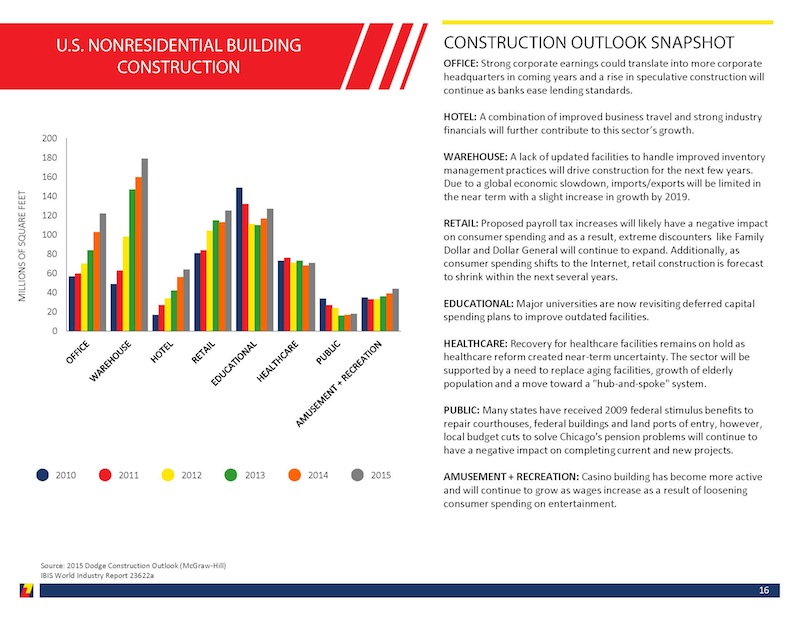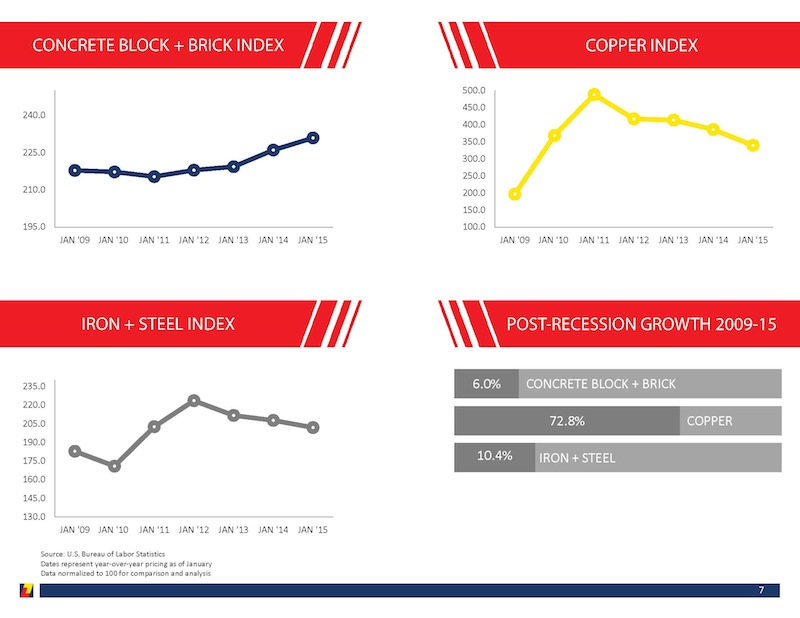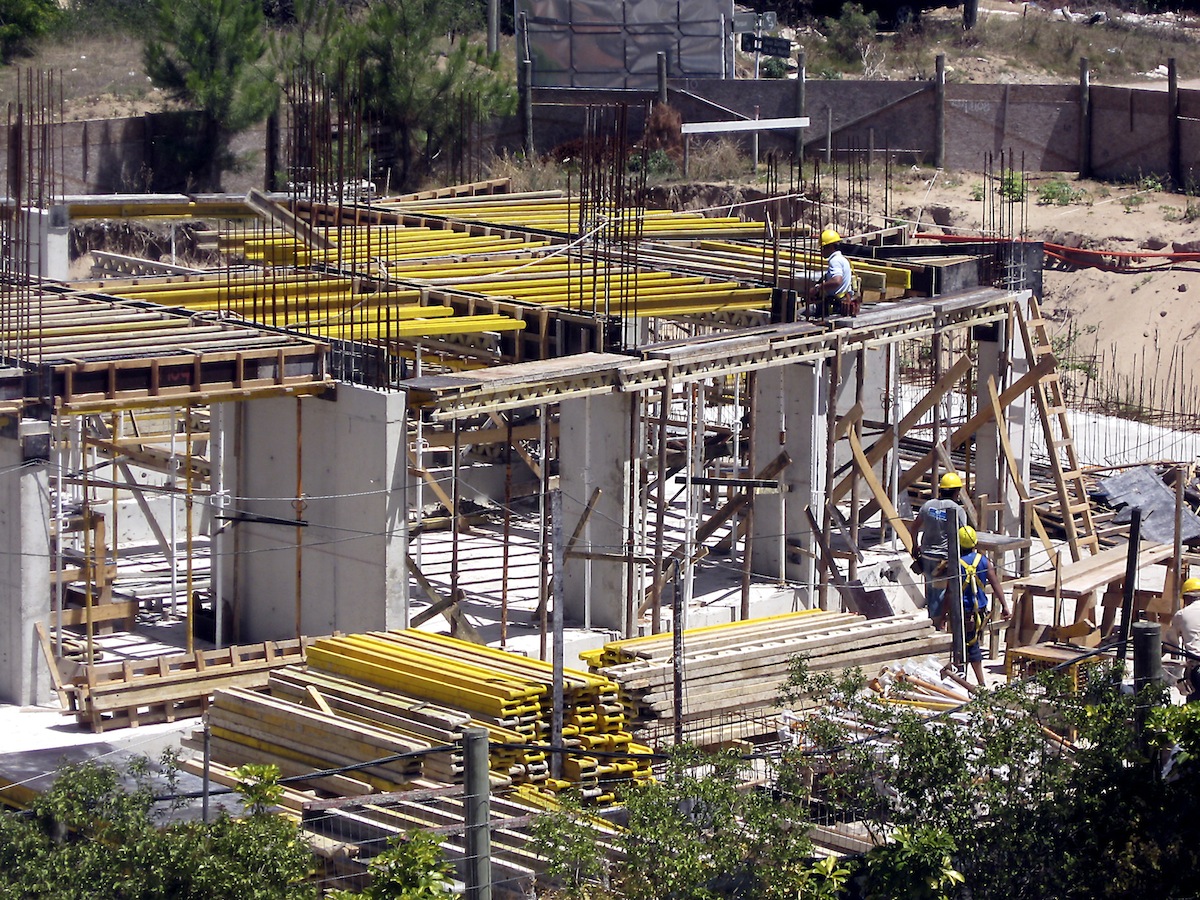Leopardo Companies, Inc. released its 2015 Construction Economics Report and Outlook, an essential guide to help business leaders, healthcare administrators, and government decision-makers understand the factors that impact construction costs.
This year’s report shows that different factors have opposing effects on construction costs. Low oil prices greatly reduce the cost of construction, and some material costs have come down over the past year.
But these factors reducing cost are more than offset by the strong increase in labor costs, brought on by a shortage of skilled workers as more than 25% of Illinois construction workers left the industry over the past five years. The overall effect is that construction costs are rising as development volume increases in Chicago and across Illinois.
“Organizations that are considering new construction and renovation projects need to understand the factors in the economy and in the construction industry that may affect the timing and cost of their projects,” said Leopardo President Rick Mattioda. “Our annual Construction Economics Report and Outlook offers a wealth of useful information to help people make informed decisions when building.”

To create the report, Leopardo analyzed economic and construction industry data from universally respected sources, and utilized that data as well as the experience of the firm’s principals to forecast the direction of construction costs over the next year.
The report provides current and recent costs relating to:
• Construction materials, including steel, wood, concrete, asphalt, aluminum, copper and paint
• Oil, electricity and other energy sources
• Union and general wage increases for construction workers and specialty contractors
• Average markup of contractor and subcontractor bids
Also included in the report is economic data such as the Producer Price Index, the Consumer Price Index, employment projections for Illinois, and construction spending by industry.
The report concludes with a snapshot of construction volume and trends by property type, including office, warehouse, hotel, multifamily residential, healthcare, educational, entertainment, and public-sector properties.


Related Stories
Airports | Aug 31, 2015
Experts discuss how airports can manage growth
In February 2015, engineering giant Arup conducted a “salon” in San Francisco on the future of aviation. This report provides an insight into their key findings.
Healthcare Facilities | Aug 28, 2015
Hospital construction/renovation guidelines promote sound control
The newly revised guidelines from the Facilities Guidelines Institute touch on six factors that affect a hospital’s soundscape.
Healthcare Facilities | Aug 28, 2015
7 (more) steps toward a quieter hospital
Every hospital has its own “culture” of loudness and quiet. Jacobs’ Chris Kay offers steps to a therapeutic auditory environment.
Healthcare Facilities | Aug 28, 2015
Shhh!!! 6 ways to keep the noise down in new and existing hospitals
There’s a ‘decibel war’ going on in the nation’s hospitals. Progressive Building Teams are leading the charge to give patients quieter healing environments.
Mixed-Use | Aug 26, 2015
Innovation districts + tech clusters: How the ‘open innovation’ era is revitalizing urban cores
In the race for highly coveted tech companies and startups, cities, institutions, and developers are teaming to form innovation hot pockets.
Contractors | Aug 19, 2015
FMI's Nonresidential Construction Index Report: Recovery continues despite slow down
The Q3 NRCI dropped to 63.6 from the previous reading of 64.9 in Q2, painting a mixed picture of the state of the nonresidential construction sector.
Giants 400 | Aug 7, 2015
GOVERNMENT SECTOR GIANTS: Public sector spending even more cautiously on buildings
AEC firms that do government work say their public-sector clients have been going smaller to save money on construction projects, according to BD+C's 2015 Giants 300 report.
Giants 400 | Aug 7, 2015
K-12 SCHOOL SECTOR GIANTS: To succeed, school design must replicate real-world environments
Whether new or reconstructed, schools must meet new demands that emanate from the real world and rapidly adapt to different instructional and learning modes, according to BD+C's 2015 Giants 300 report.
Giants 400 | Aug 7, 2015
MULTIFAMILY AEC GIANTS: Slowdown prompts developers to ask: Will the luxury rentals boom hold?
For the last three years, rental apartments have occupied the hot corner in residential construction, as younger people gravitated toward renting to be closer to urban centers and jobs. But at around 360,000 annual starts, multifamily might be peaking, according to BD+C's 2015 Giants 300 report.
Giants 400 | Aug 7, 2015
UNIVERSITY SECTOR GIANTS: Collaboration, creativity, technology—hallmarks of today’s campus facilities
At a time when competition for the cream of the student/faculty crop is intensifying, colleges and universities must recognize that students and parents are coming to expect an education environment that foments collaboration, according to BD+C's 2015 Giants 300 report.

















